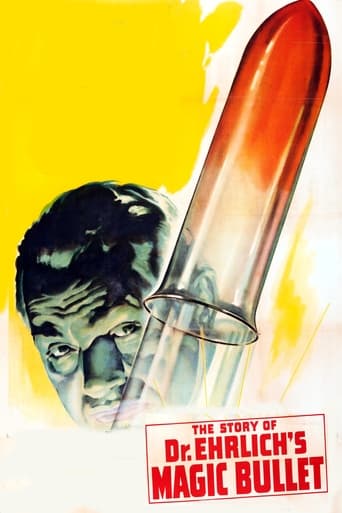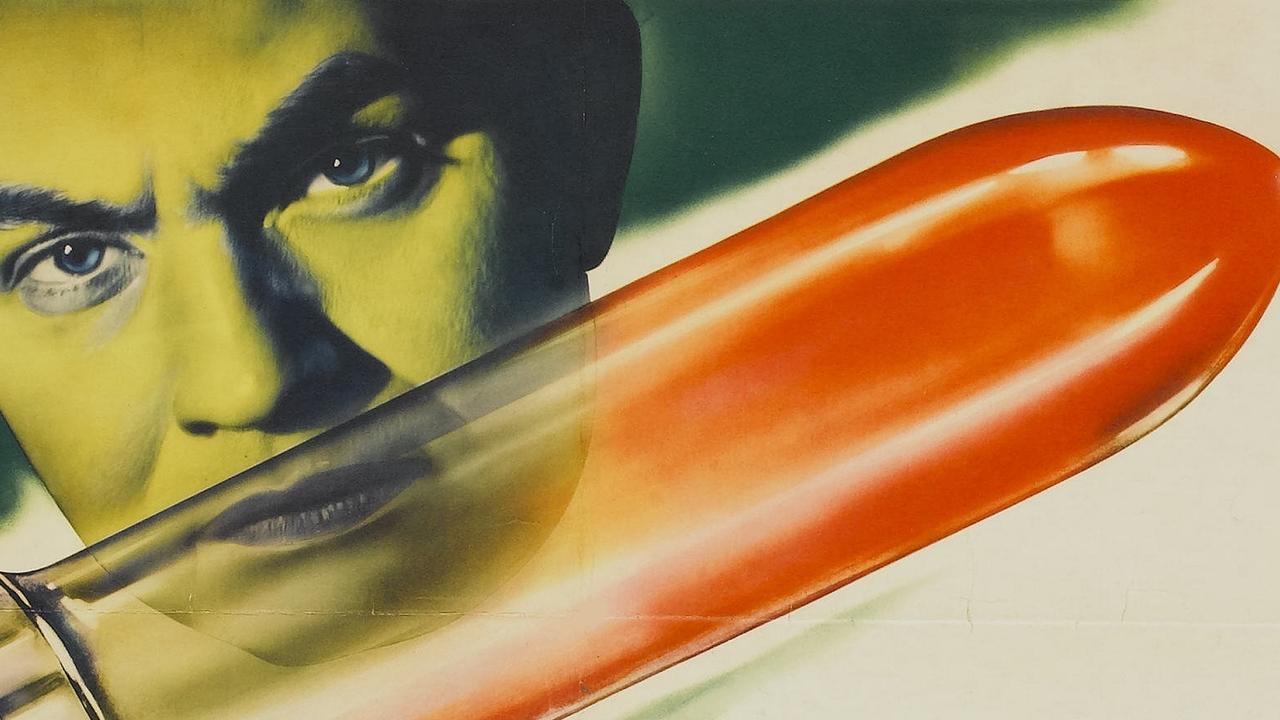utgard14
Grand biopic as only Old Hollywood could do so well. An excellent performance from Edward G. Robinson as Dr. Paul Ehrlich, who works to create a cure for syphilis while battling tuberculosis and his peers' small-mindedness. With direction by the great William Dieterle and a script co-written by John Huston, this is an exceptional film. It's not easy to make a great movie out of what is essentially a medical research story, but they pull it off. Terrific supporting cast including Ruth Gordon, Donald Crisp, Otto Kruger, Donald Meek, Henry O'Neill, Maria Ouspenskaya, Albert Bassermann, Louis Calhern...so many more. Just a great lineup. Pretty daring to make a movie about syphilis at a time when the Production Code was in full effect. Wonderful biopic you should definitely check out.
Homer900
A classic biography made more special by the performance of Robinson. I watched with fascination as he aged and watched with longing for the day when movies like this celebrated scientists, explorers and others who set out to better the lot of mankind. I was also surprised too when they finally mentioned the word "syphilis". I imagine it was shocking to audiences of 1940, just a year after the surprise of Clark Gable's RhettButler telling Vivian Leigh's Scarlett that he didn't "give a damn."Oh, for the days of movies like this. No CGI, no explosions, no f-bombs, nothing but pure cinema magic and a story about a great person.
weezeralfalfa
If you think Eddie Robinson only played tough little low lifes in Hollywood movies, this film shows that he could convincingly portray heroic scientific pioneers, as well. I don't pretend to have seen the majority of films he played in, as most are not my type. However, his portrayal of pioneer medical researcher Paul Ehrlich is among the few of his performances that stays with me. Just as Muni was born to play Louis Pasteur and Emile Zola, and Kirk Douglas to play Vincent van Gogh, I believe Robinson was born to portray Ehrlich. He appropriately plays him as a more subdued personality than Muni's Pasteur, but not without interest. Certainly, Robinson deserved an Oscar nomination for this role as well as for his riveting performance as Wolf Larsen in "The Sea Wolf", the following year.Now, there is the question of how many of the details of this film are based on fact. Hollywood is notorious for manufacturing biographical details, while ignoring reality. From what I was able to find on the net, there is some fact and some fiction in the details, but the overall gist is reasonably accurate. The film repeatedly portrays Ehrlich's financial and employment insecurities, subject to the meddling of short-sighted politicians and committee members, as well as his up and down relationships with some of his colleagues. In this, he was not unlike his modern academic counterparts. I could find no reference to the adder bite incident, nor the implication that it was important in guiding his later research. His importance in developing a stain for TB is overstated and portrayed wrongly. However, he was instrumental in promoting the general idea of using selective stains to visualize cellular and tissue details, as well as to visualize bacterial pathogens. 1882 was a banner year in the development of selective bacterial stains. Not only did Koch and Ehrlich develop rather similar stains for the TB bacterium, the acid fast stain for TB was soon after discovered, still used today. Meanwhile, Hans Gram was developing his still widely used Gram stain for most bacteria. As portrayed in the film, there was much controversy surrounding the safety, effectiveness and advisability of using Ehrlich's arsenical compounds for curing or preventing the transmission of syphilis. Much of the controversy was instigated by a widely held belief that venereal diseases were rightly God's punishment for promiscuity and thus should not be meddled with. After Ehrlich's death, it was discovered that adding small amounts of bismuth or mercury to the arsenic compound usually increased its effectiveness. Mercury, and the more effective, less toxic, potassium iodide were often administered before this, apparently often with good results. Thus, the implication in the film that there was no effective prior treatment should be qualified.As portrayed in the film, Ehrlich's chain smoking of cigars no doubt hastened his relatively early death from stroke. Surprisingly, it apparently did not exasperate his TB. He did spend some time in Egypt, which did send his early case of TB into permanent remission, demonstrating that 19th century ideas of sun, dry fresh air and rest for treating TB did sometimes work. Unfortunately, this approach was not practical for the mass of working class people.
hffoundry
Well made and accurate film illustrating the great efforts Dr. Ehrlich made in strict scientific method and his ability to comprehend disparate events. This culminated in Dr. Ehrlich's nearly single-handed development of cytology, histology, hematology, hypothesis of immunity and antitoxins and cure for syphilis. Illustrates what one determined individual willing to work may accomplish to the betterment of mankind. Paul Ehrlich was a dedicated physician and scientist of the first order. His efforts likely saved the lives of some of your ancestors if not you, yourself. I regret I can not afford to buy the movie, nor find it re-listed on the TV guide or movie listings. I would be happy to see it again, though it illustrates how little I have made of my life in comparison to that of Dr. Ehrlich.


 AD
AD



